… or how my Steam library grew from nothing to 7000 games, and why the gaming industry is doomed!
Hi, I’m Genkipro and I’ve always liked games!
I’m a gamer from way back. The first computer in my house when I was a kid was a Commodore Vic20, but I had friends with Atari, Coleco, Vectrex, and so on. I’ve loved computer games for basically all my life, or at least all of it that I can remember.
A large part of my free time during my childhood, teenage years, and early adulthood was spent playing computer games, and a large portion of my “disposable income” during that time — be it from my allowance as a child or from paid work as I grew up — was always spent on them. My first computer paid for with my own blood, sweat, and tears was an Amiga 500 and by the time I could afford a PC it was a 486: a DX2/66; what a beast! I also still own a Playstation (PSX), PS/2, Wii, and XBox 360. And I’ve bought games on all of these platforms at one time or another, though PC games far eclipse the others in number and cost.
I remember brimming with excitement when I saw a new game in my local PC games shop or department or electronics store. I bought many games on their Australian release days, and plenty more later than that, or while travelling overseas, and it was abnormal for any of them to cost less than $50; less than $20 was almost unheard of.
I hate to think how much money I’ve spent on games, and PC games would eclipse all of them. I recently finally parted ways with my old “big box” collection of PC games from the 1990s. I looked over each one and started to count up in my head how much they cost, for those I could recall anyway. Some still had receipts, which made it much easier. After I got past the first $1000 and still had a mountain of games to sort through I decided it was better to not know, and started throwing out the receipts without looking at them.
Steam? Never! — The Rise of Genkipro
In the early new millennium I fought against Steam for years. I refused to install it or buy any games on it. “I own my games, you don’t!” I’d point out to my long-suffering friends. Or I’d deliberately get out my non-Steam version of a game and point out how I could lend it to them to play whenever I wanted to, or resell it, or even play it offline, but they couldn’t do the same with their digital libraries. And all I had to do to play a new game was put in the CD and install it; they had to download for hours!
That would all change in January, 2012, shortly after the release of Saints Row: The Third, though I didn’t know it then.
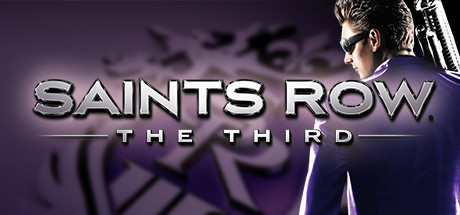
You see, I’d been raging against the machine (Steam engine?) for so long that I couldn’t back down. Saints Row: The Third came out and after reading reviews I decided I really wanted it. So I searched for a good price online and in my local stores. Many didn’t mention Steam, so I naturally assumed I’d get the DVD, install it, and go on playing without Steam as I always had.
I ended up buying it from OzGameShop — an online store focused on Australian sales, but based in the United Kingdom, despite its name — and the game arrived in its lovely DVD-style case a couple of weeks later. I opened it, inserted the DVD, and installed it, looking over the tiny printed “instruction booklet” as I did so. (Aside: “booklet” is a misnomer. It is a single sheet of folded glossy paper. I do miss the good old days of huge printed manuals, but I’m sure the trees don’t!)
“If you purchased a boxed copy of Saints Row: The Third, insert the DVD-ROM into your drive. Select your language, and then install the game. You will be prompted during the installation to install Steam …”
WHAT!? They’d tricked me! I couldn’t play my lovely new game without installing Steam. Bastards! It was the end of the world. In a rage I created my Steam account with the intention of selling it, together with the one game that was in it, and named it appropriately for that purpose: genkipro.
But as I started to use Steam it grew on me, and less like a fungus or cancer than some sort of symbiont. It was like the two of us were meant for each other: clunky, never quite working properly, but really pretty easy to use and get along with once you get right down to it (hmmm, opposites attract maybe?). I found out that the Steam ToS actually said accounts weren’t transferrable, and you know what? I didn’t really care that much anymore.
This Steam thing was all right.

A Golden Age?
Many people have said it before, so me saying it isn’t telling anybody anything new, but soon after that I realised that we really do live in an age of cheap PC games.
My Steam library grew as I saw the big Steam sales arrive, with their “flash sales” designed to hurry people into buying something they might not otherwise. And then I discovered Bundlestars, Indiegala, Humble Bundle, and many, many more bundle sites. I was too late for the early Humble Bundles — some of them offered amazing deals even looking back now — but I rode the wave of increasing bundle popularity, and rapidly accumulated more games than I could actually even look at, let alone play, and all for a fraction of the price of my earlier, much smaller physical game collection.
Free games suddenly appeared, too: steamgifts, tremorgames, gamekit, galagiveaways, … . My free time decreased with each new site I discovered. And trading cards! By the gods, the time I spent watching the Community Market, earning and listing and relisting trading cards … . I got free Steam Wallet, and some sales I had over $100 of trading card money to spend on games I actually wanted, but didn’t have the time to play. But I was feeding my gaming addiction — engaging in my hobby — so it was okay, right?
Except that my addiction had moved subtly, from playing to acquiring. I spent hours every week trawling site after site, “saving” money by buying games at huge discounts. Any discount less than 70% wasn’t worth my time. Anything less than 90% was probably still too expensive to consider; it’d be bundled or would be cheaper in the next sale, so I could wait.
Sure, I’d only buy a game or bundle, or claim a give-away game, if I thought it had something worthwhile. I intended to play all the games I was buying. But I slowly came to the realisation, somewhere around 2000 games in my Steam account, that I was never going to be able to do so. At the time of writing this article I have around 7000 games registered to my account — a little more or a little less, depending on which of Steam’s multiple counts is used — plus a heap of DLC. For someone who has many real-life responsibilities and is, in all likelihood, past the middle of his life, this is a slightly worrying thought.
The amazing thing to me about all of this is how cheaply I’ve managed to amass such a huge amount of digital entertainment! To be completely truthful, I haven’t wanted to add it up. But I am absolutely sure that it’s cost me less, even ignoring inflation, than my much smaller physical game collection did. I’ve even re-bought many games of which I had physical copies, since having them on Steam is just so much more convenient, and paying a dollar for something that already cost me $60-$90 doesn’t seem too unreasonable. You know; I might want to play it again one day. *sigh*

Bumps in the Road
It hasn’t all been smooth sailing, though.
Valve’s addition of the Australian Dollar (AUD) to Steam last year removed hundreds (thousands?) of games with no AUD price specifically set by the developer or publisher from the Steam Australian storefront, and many of these are still unavailable to Australians now, almost six months later. The last year has seen a slew of shady one-man-indie developers revoking keys from some of the less reputable bundle sites, too. Though I don’t think I’ve lost anything important from this — they’ve all been filler — it’s still disconcerting. In spite of all that, though, I’ve amassed a veritable trove of gaming treasure, as well as a fair amount of “bundle trash”: filler games that I only have because they were in bundles that I bought primarily for other games that were included.
Australia’s crazy classification and censorship laws have required changes to some games, prevented others from being sold here, and scared some developers and publishers away entirely. Popular and well-known titles and properties like Fallout, Saints Row, and Grand Theft Auto have been closely scrutinised by a handful of people with the power to decide what is good and decent for the rest of the country, and Valve and the publishers and developers that use Steam have had to follow their instructions. That’s nothing new — I once had a physical copy of Hooligans: Storm over Europe that I bought from eBay UK stopped by the Customs Department and apparently destroyed, as it was not permitted here — but the scale and centrality of Steam is such that it’s much easier for the censors to stop games at their source (haha!) now than it was with physical media before.
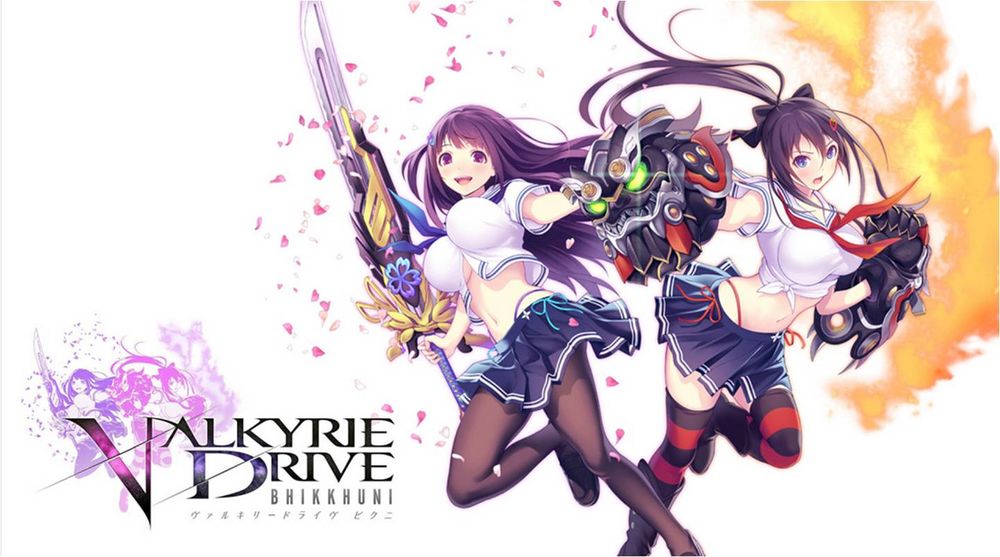

I also discovered that I enjoyed writing game reviews, and some people even liked reading them! So now when I play a game I often spend hours writing about it, recording videos, and taking screenshots, which further reduces the time I have available for actual playing. And while I’m doing this, of course, I’m still accumulating more games that I want to play, from bundles and monthly subscriptions and Steam and other sales; usually more quickly than I can play them.
Anyway, I digress. The point of this article was supposed to be the prevalence of cheap computer games available over the past few years and to raise a few points that I wanted to make regarding how I buy games, what that could potentially mean for the games industry in the future, and why bundles might be bad for the industry as a whole. These things have probably all been said before, but perhaps they bear saying again anyway.
A Game-buying Addict’s Rules of Engagement
So, first of all, I prefer to have all my games in one place. Given that Steam is by far my largest games library, for me that means I want them on Steam. I’m prepared to pay a little more for the convenience — especially if I can find a cheap Steam Wallet card for sale anywhere or have spare trading card money — but not a lot more. Steam is by far the best PC games platform available. I rarely even bother going to Google these days to search for reviews, videos, screenshots, guides, or anything related to a game in which I’m interested; Steam provides almost everything I need for almost every game. But I do very occasionally buy games on other platforms.
Second, I never pay full price. I have a huge backlog of games and the urge to play a brand new game now instead of in six months is minimal. Almost every game in which I’ve been interested has been on sale within months of release. Since I probably won’t get a chance to look at it until it’s on sale, I may as well wait for the sale, right?
Sites such as IsThereAnyDeal and Deals.gg are useful for finding the best price available, but also for finding the historical low price. Why buy a game direct from Steam for $10 when I can get a Steam key from Humble or GMG for $8? And why buy a game now when it’s only 65% off, when I can see that for each major Steam sale it regularly drops to 75% off?
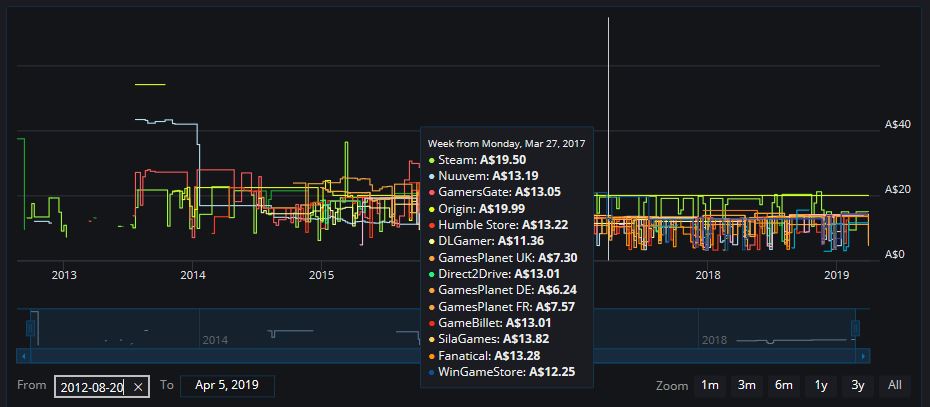
This applies to deeper sales and bundles, too, though, and that’s where the largely mechanical process of price comparison becomes more of a game of chance and prediction: gambling, if you like.
Should I buy a game for -50% off in this sale, or will it be bundled before I get a chance to play it? Bundles usually end up providing a number of games at hugely discounted prices — often over 90% off — so even on a deep individual discount price of say 75%, I’ll often still not buy if I think the game will be bundled in the future. And what about rebundles? Why buy a top-tier bundle now for $15 if I’m pretty sure the games I want from it will be rebundled in a few months for a third of that, or I’ll be able to trade some of my bundle leftovers for them on one of the many trade sites?
You see, having a huge Steam backlog that includes many games that I genuinely want to play means that the marketing and sales peoples’ weapon of inducing a sense of urgency in the consumer is taken away. Having access to historical pricing charts means that I can make predictions of future price much more accurately and simply. And the prevalence of the bundle market means that there is always that uncertainty there; it provides strong incentive to not buy the individual game I want, even on sale; even at what would otherwise be a very good price. It also provides a grey market for trading, pushing down the “worth” even more of games that have been bundled.
Bundles are bad, mmmkay?
I think that, once upon a time, bundling a game might have been a good idea for a publisher or developer. The game would be seen by many more people, earn a little, and the massively reduced price of the game in the bundle would only be a temporary dip; once the bundle was finished anyone else wanting the game would have to pay the normal price again.
Now, though, there are so many bundles and so many people buying them — many only for trading purposes — that once a game is bundled it is effectively never again going to be worth significantly more than the portion of the bundle price that the trading market allocates to it while the bundle is running. Occasionally you’ll see a game that people really want being bundled only rarely, so there will be gradual increases in price over time, but generally speaking, bundling a game forever diminishes its value dramatically, at least among potential purchasers who are aware of the bundle and trading markets.
Based on my own buying habits, I also believe that not only bundling a game, but even being perceived as being likely to bundle a game, may negatively affect sales of that game, even at a deep discount. The very presence of the bundle market raises the possibility that a game I want to buy will be bundled, decreasing the likelihood that I will buy it individually. If that game’s developer or publisher has bundled before then that likelihood decreases still further. And even if they haven’t, if a game somehow looks like the sort of game that might be bundled, say in a Humble Monthly, then I’m unlikely to buy it directly. I’ve been bitten too many times.
It seems to me, then, that if the bundle market continues in its current fashion, the bundles that were presumably supposed to useful marketing tools for publishers and developers will actually turn against them. This has probably already happened.
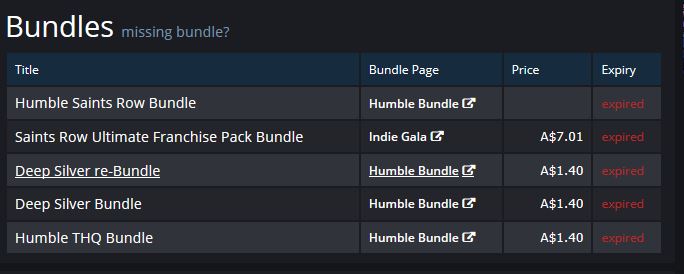
The only time a game should be bundled is when its predicted future sales are less than the predicted income from the bundle itself, since income after the bundle will be heavily restricted. To put it another way, the only way for publishers or developers to maintain their games’ value is to not bundle them, or hope that the overall market for their games is much larger than the portion of it that is aware of the bundle market — which then removes most of the marketing incentive for bundling anyway.
So, what’s next then?
I see two ways to improve the situation immediately, but neither would be popular with consumers: stop bundling entirely, or remove raw keys and gifts and tie the bundled games to the purchasers’ accounts.
I hope the first doesn’t happen. Though I think bundles have become too prevalent to support a healthy game industry, I do hope they don’t disappear entirely. But I think the second is worthwhile.
If every Humble Bundle, Indiegala, Fanatical, etc, account is only able to redeem games against a single Steam account, Uplay account, and so on, then we would have no more bundle spares; games that a bundle purchaser already owns would be “wasted”. This would remove the ability for traders to trade bundle keys and gifts in one fell swoop, effectively destroying a large portion of the grey market entirely.
I think this would also most likely reduce the number of bundles bought, cause a lot of uproar, and either increase the price of the bundles or reduce the quality of games in them, or perhaps both: fewer buyers means less money for the bundle companies and the developers and publishers submitting games to the bundles, thereby making the bundles less attractive overall from financial and marketing viewpoints.
It also wouldn’t directly address my buying habits, which may be indicative of the larger bundle-buying gaming public. While bundles still exist at all, I’ll still be trying to predict whether a game I see on sale will be bundled before I can play it. And there’s still no way I’ll buy a game at full price (except maybe, just maybe, Cyberpunk 2077).
But the industry needs to tackle the problem one step at a time. I think this would be a good first step.
Comments Please!
What do you think? I’d love to hear others’ thoughts and comments. Is my basic analysis flawed? Am I missing a big piece of the puzzle?
Ultimately these are just my rambling thoughts and observations, mainly based on my own experiences and cognitive processes while searching out bargains. But I expect I’m not necessarily normal; I’d be interested to see how others — addicts and not — operate in the current environment.
The Future?
I’ll leave you with a final thought.
SteamLeft is a website that estimates how long it would take to complete every game in a specified Steam library. I don’t know the details, but my guess would be that the calculated times are based on average playtime for everyone who owns and has played a game, so they’re probably heavily influenced by idle bots, but it’s still fun to look at occasionally. HowLongToBeatSteam is another that does a similar thing, but adds some interesting extra features and excludes some open-ended games. It also goes into more detail regarding game completion, so I expect it’s less influenced by bots. In both cases, my Steam profile is public, so anyone can see my shame.
At the time of writing, SteamLeft tells me I’ll need 10410 continuous hours of gameplay to completely play my Steam library. That’s only about an hour and a half per game, which seems pretty low to me, even considering the amount of bundle trash that clogs my games list. I have almost 500 hours in GTA V, Conan Exiles, and BATTLETECH alone, and I still occasionally play all three, as well as many other games with tens of hours, so something tells me it’s only a very rough guess.
HowLongToBeatSteam seems likely to be more accurate. It says I’ll need over four years to complete main objectives, over six-and-a-half years to complete all the extra quests, etc, and almost 12 years of continuous playtime to get 100% achievements, playing a game every second of every day. And that doesn’t include many of the open world games I tend to enjoy the most.
I used to have a sort of bucket list for when I retired. Now I just hope to be able to retire early enough, and live long enough, to beat my Steam library.
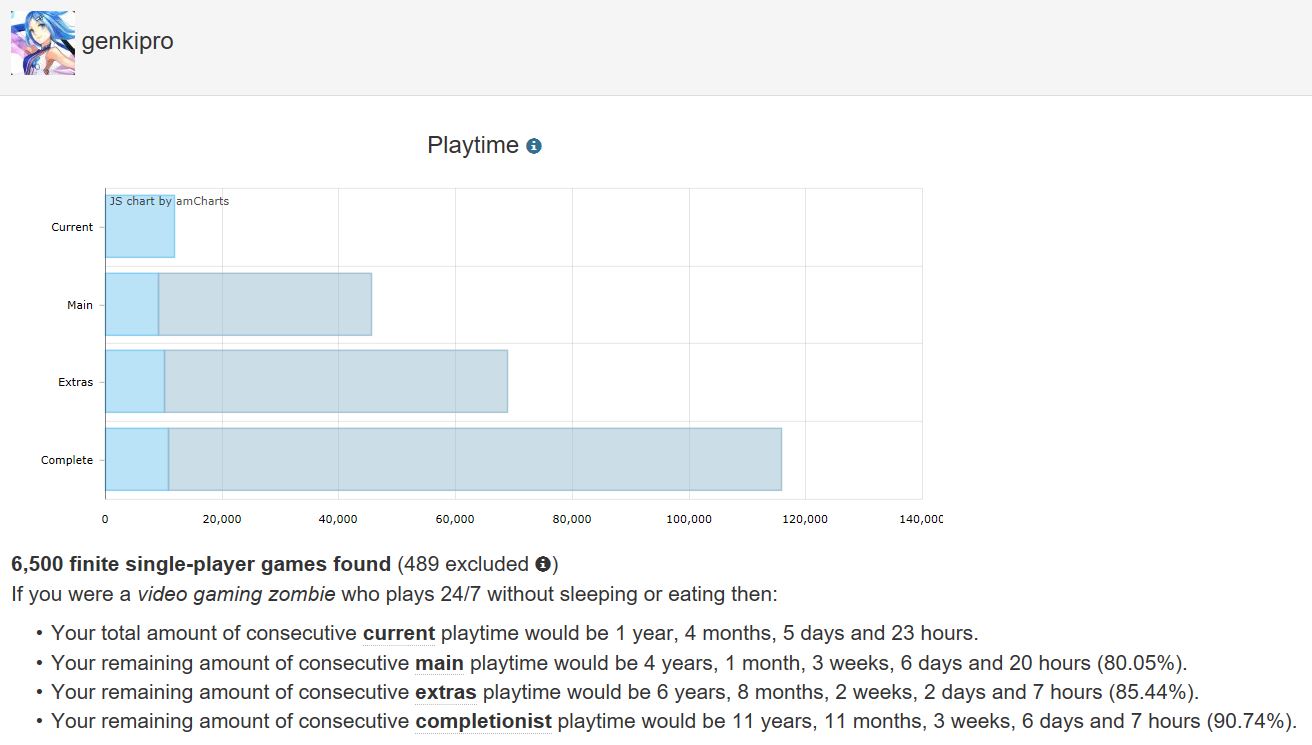

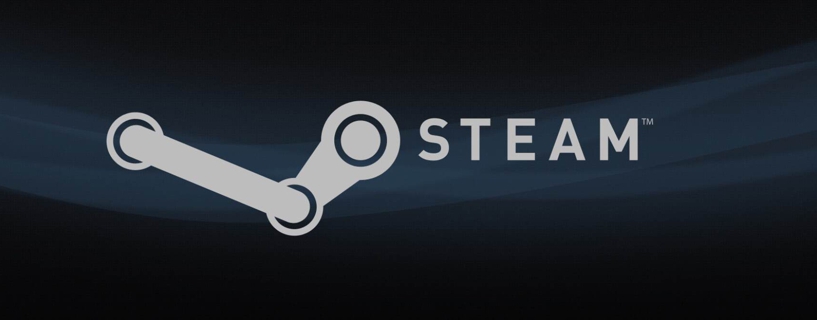
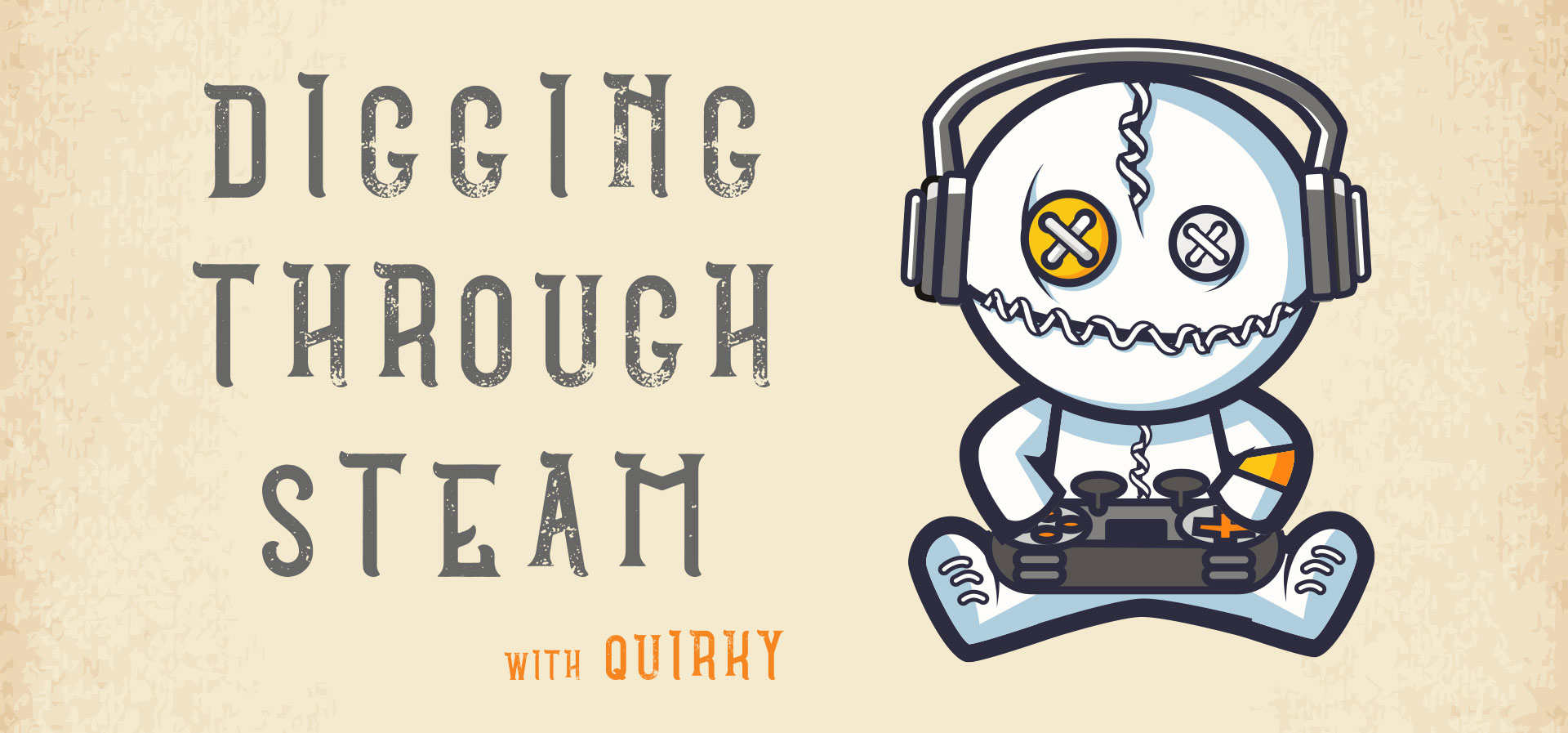
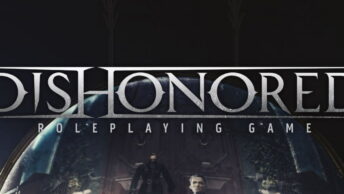



Very good article. I do think the bundle form of marketing is very much overused nowadays but then that directly feeds into my own addiction, er buying habits.
One thing you missed perhaps the practice of discounts on new releases and preorders. More so nowadays I can buy new release games at 15% to 20% off the retail price and these games aren’t even released yet. I even shop around different sites to see who is offering the best discounts on this game that will be released in the next couple of days.
How do you think this practice affects the gaming industry?
That’s a really good question. I haven’t bought a pre-release game in … umm … it might be forever, I guess. I certainly can’t remember ever buying one.
But if a brand new game is already 20% off before it’s even released, it does make me wonder whether anyone would be willing to pay the full retail price, ever!
I’ve noticed that a lot of new games these days, even AAA titles, are rapidly falling to what would previously have been considered a very good discount, too. Fallout 76 dropped rapidly in price, though it was critically abused so that could be a good reason why. Far Cry: New Dawn, however, was reasonably well received and has already been over 50% off (historical low is apparently 54% off right now on GameBillet, according to deals.gg) and it’s only two months old!
Is this related to the practice of offering significant pre-order discounts? I don’t know. But personally I can’t imagine myself buying a game for full price shortly after release if I can see that it was 20% off, potentially with a fancy pre-order exclusive bonus, only a month or two before. And if it’s likely to be 54% off within a couple of months, then I’d be holding off until then, at least.
But I do admit that I’ve been accused of being a cheapskate on occasion. 😀
I guess the market will correct itself eventually. At some point fewer quality games might come in bundles, and humble would .. I don’t know, do something that businesses do when they are struggling (worst case scenario for them, if at all possible).
But really, the responsibility for avoiding inundation is mostly on the customer/consumer him/herself. -90% is not a saving, if you could save 100% by not buying. And most people that spend thousands on Steam/gaming in general, probably have many thousands more in disposable income.
Hi Belkito!
You’re absolutely right when you say that -90% is not a saving if you wouldn’t have bought it anyway. And that’s where the addiction factor comes in: bargain hunting for its own sake, rather than for enjoyment of the product you just happen to be buying. I’m getting slightly better, I think, but sometimes I relapse. Well, often I relapse, if I’m honest. But I think I’m getting slightly better, anyway! 🙂
As for the market correction, well you’re right there, too, I think. I mean, it has to correct itself at some point, right? It seems that what’s been happening these past few years is unsustainable. But I don’t know what that correction will look like. I mean, yes, probably you’d expect publishers and developers of “higher quality” (more immediately saleable?) games to stop bundling them, but in the last couple of years they seem to be the most visible group that has started to bundle more heavily. The Humble Monthly seemed to mostly be quality indie titles for the first year or so, but these days it seems to have an AAA game in it almost every month, and sometimes more than one. Humble just finished a Square Enix bundle (the T3 games of which I only just bought on Steam three weeks beforehand, of course!). And Fanatical often has some pretty big names in their better bundles, too.
I don’t know. These publishers are big companies with a lot of experience. I guess their bean counters have to be doing the sums on projected bundle sales and projected sales after the bundles finish and coming up with an answer that means it makes sense to bundle. But I just wonder whether maybe their projections for post-bundle sales need revision in light of all the bundle keys that end up floating around for sale for months or years after a bundle ends.